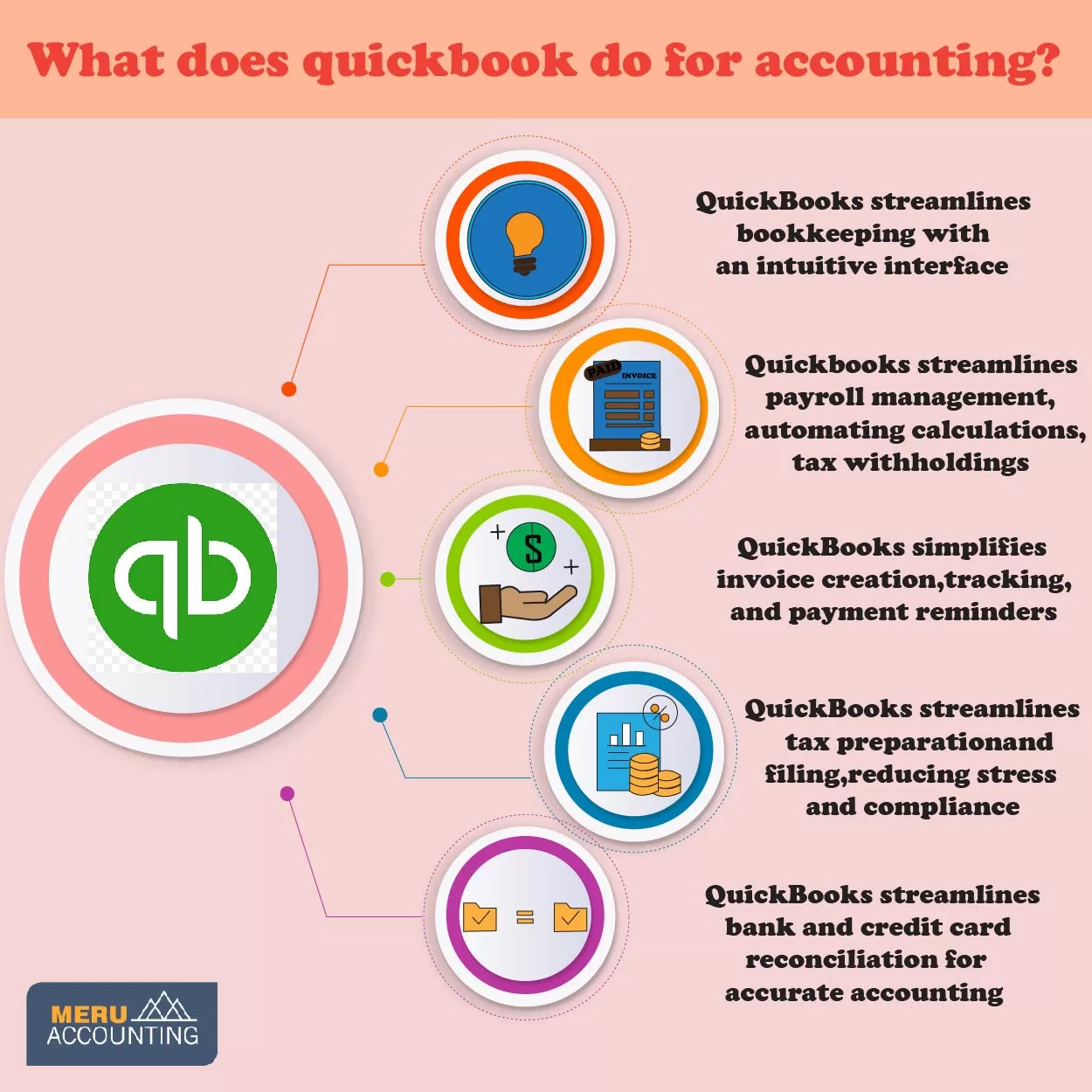Home » What does QuickBooks do for accounting?
What does QuickBooks do for accounting?
QuickBooks is a popular accounting software that has revolutionized financial management for businesses across the USA. It offers a user-friendly platform that simplifies various accounting tasks, making it easier for both small and large enterprises to manage their finances efficiently.
Let’s explore what QuickBooks does for accounting:-
Bookkeeping Made Easy:
QuickBooks simplified bookkeeping tasks, which involve recording daily financial transactions such as sales, expenses, and payments. With its intuitive interface, users can easily enter data, categorize transactions, and keep track of income and expenses. This QuickBooks accounting feature eliminates the need for manual ledger books and ensures that all financial information is well-organized and readily accessible.
Invoice and Payment Management:
Creating and managing invoices becomes hassle-free with QuickBooks. Businesses can generate professional-looking invoices, send them to customers electronically, and track payments. The QuickBooks accounting also enables automatic payment reminders, reducing the chances of delayed payments and improving cash flow.
Financial Reporting and Analysis:
Understanding the financial health of a business is essential for making informed decisions. QuickBooks offers a range of financial reports, such as profit and loss statements, balance sheets, and cash flow statements. These reports provide valuable insights into the company’s performance, helping business owners and managers analyze trends and identify areas for improvement.
Payroll Processing:
The QuickBooks software simplifies payroll management by automating payroll calculations and tax withholdings. Business owners can easily process paychecks for employees, handle payroll taxes, and generate reports for tax filings. This feature saves time and ensures accuracy, reducing the risk of payroll-related errors.
Tax Preparation and Filing:
Preparing and filing taxes can be complex and time-consuming, but QuickBooks streamlines the process. The software helps businesses organize their financial data and generates the necessary forms for tax filing. This feature minimizes the stress of tax season and ensures compliance with ever-changing tax regulations.
Inventory Tracking:
For businesses that deal with physical products, tracking inventory is vital. QuickBooks provides inventory management tools, allowing businesses to monitor stock levels, record sales, and receive alerts when inventory is low. With this feature, businesses can optimize their inventory levels and avoid stock outs or overstocking.
Bank and Credit Card Reconciliation:
Matching transactions recorded in QuickBooks with bank and credit card statements is critical for accurate accounting. The QuickBooks software simplifies this process by offering reconciliation tools, ensuring that all financial data is up-to-date and consistent with the actual bank and credit card records.
Expense Management:
Keeping track of expenses is crucial for maintaining a healthy bottom line. QuickBooks enables businesses to record and categorize expenses, making it easier to monitor spending patterns. This feature helps identify areas where costs can be reduced, contributing to increased profitability.
Integration with Third-Party Apps:
The QuickBooks software offers integration with various third-party applications, expanding its functionality further. Businesses can connect QuickBooks with tools for payment processing, time tracking, customer relationship management, and more. This integration streamlines workflows and enhances overall efficiency.
Contact the CPA firm Meru Accounting for a number of accounting and payroll services. Additionally, they offer QuickBooks and a number of other services.



